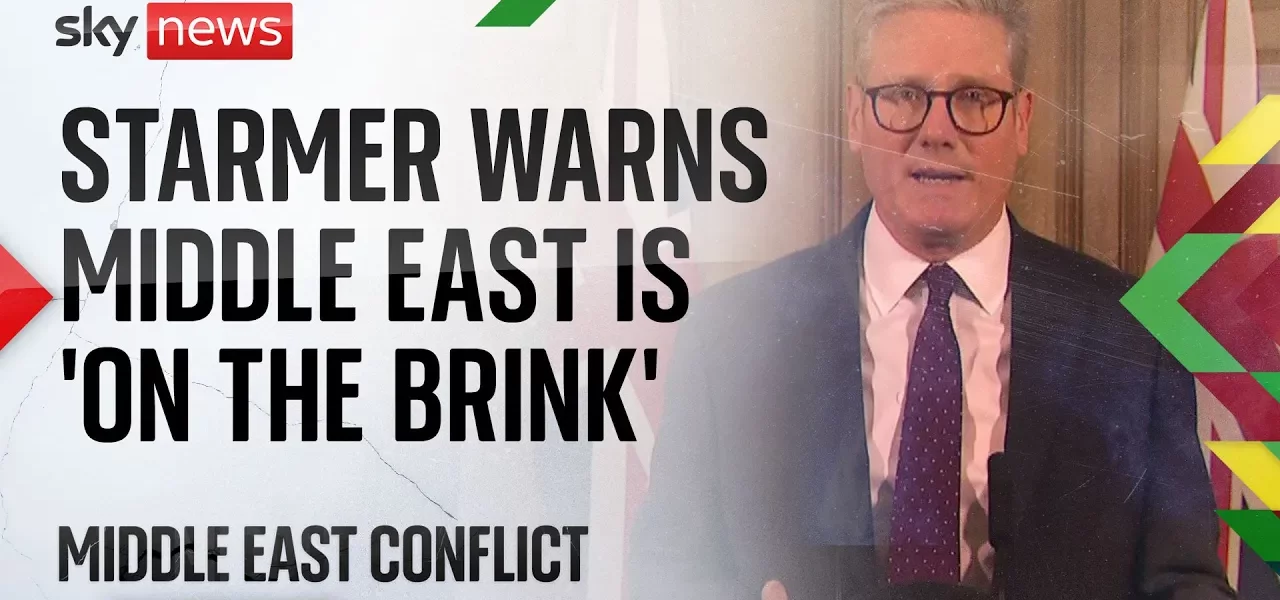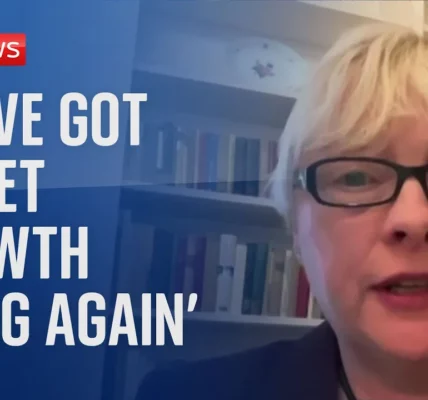Prime Minister’s Condemnation of Iranian Missile Attacks on Israel

The recent missile strikes from the Iranian regime targeting civilian areas in Israel have sparked global outrage. In a decisive response, the Prime Minister has condemned these attacks, emphasizing Israel’s right to self-defense and the urgent need for political solutions in the region.
Introduction
The ongoing conflict in the Middle East has reached a critical juncture with the Iranian regime launching over 200 ballistic missiles aimed at civilian targets in Israel. This aggressive action has been met with strong condemnation from global leaders, including the British Prime Minister. The situation highlights the volatile nature of the region, the risks of escalation, and the pressing need for diplomatic solutions to prevent further violence.
Condemnation of Iranian Aggression
The Prime Minister has unequivocally condemned the Iranian regime’s missile attacks, stating that such attempts to harm innocent civilians cannot be tolerated. The following points summarize the key aspects of this condemnation:
- Support for Israel’s right to self-defense.
- Recognition of the potential for the situation to escalate dangerously.
- Call for Iran to cease its aggressive actions, including attacks via its proxies.
Impact on Regional Stability
The missile strikes have not only threatened Israeli civilians but have also destabilized the broader Middle Eastern region. The Prime Minister highlighted several concerns regarding this instability:
Consequences for Neighboring Countries
Iran’s actions have far-reaching effects, impacting countries like Lebanon and others in the region:
- Increased tensions between Israel and Lebanon.
- Potential for wider conflict involving multiple nations.
- Threats to civilian safety in neighboring countries due to retaliatory measures.
Risks of Miscalculation
The Prime Minister warned of the high risk of miscalculation in such a tense environment. Missteps by any party could lead to:
- Escalation of military conflict.
- Involvement of additional countries.
- Humanitarian crises affecting millions.
International Diplomatic Efforts
In light of these tensions, the Prime Minister has engaged in discussions with various world leaders, including:
- Prime Minister Netanyahu of Israel
- The King of Jordan
- President Macron of France
- Chancellor Schultz of Germany
These discussions are aimed at fostering a political solution to the ongoing conflicts in both Lebanon and Gaza. The Prime Minister emphasized the need for:
Calls for Ceasefire and De-escalation
During these conversations, the Prime Minister has consistently advocated for:
- A ceasefire in the region.
- Immediate and unconditional release of hostages.
- Creating conditions conducive to peace talks.
Advice for British Nationals in Lebanon
With the situation rapidly evolving, the Prime Minister has issued urgent advice to British nationals in Lebanon:
Recommendations for Safe Departure
The following steps are recommended for those still in Lebanon:
- Leave Lebanon as soon as possible.
- Register your presence with government officials on the official website.
- Utilize chartered flights organized by the government.
The Prime Minister stressed the extreme volatility of the region, urging citizens to act quickly to ensure their safety.
Conclusion
The Iranian missile attacks on Israel have underscored the urgent need for international solidarity against aggression and the importance of pursuing diplomatic solutions. The Prime Minister’s firm stance in support of Israel’s right to self-defense and the call for a ceasefire reflect a commitment to regional stability. It is imperative that all nations work together to de-escalate tensions and seek peaceful resolutions to ongoing conflicts. As the situation develops, the Prime Minister has pledged to keep the public informed of any updates and actions taken in support of peace and security in the region.
For more insights and updates on international relations and security, visit our International Relations section.
“`




